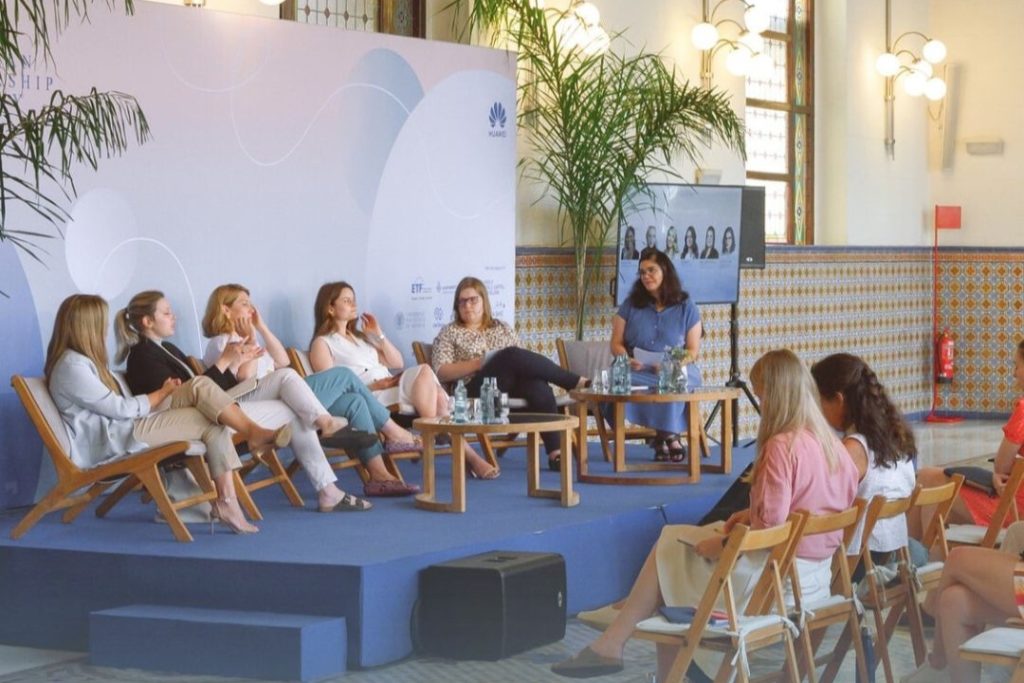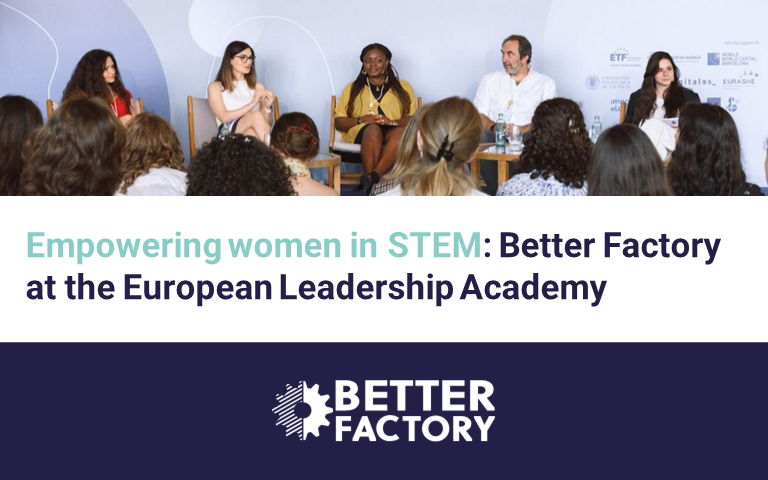This August in the heart of Valencia, Spain, the European Leadership Academy played host to an event that resonated with the aspirations of a future where women thrive in the digital economy. The academy’s “Summer School for Female Leadership in the Digital Age” is a platform where luminaries from various fields converged to discuss and explore avenues for empowering women in traditionally male-dominated domains, particularly in the realm of STEM (Science, Technology, Engineering, and Mathematics).
Standout moments included the panel discussion, “Humanists in Tech – Career Paths to STEM”, a thoughtful discourse on breaking barriers, challenging biases, and paving the way for female leaders in the world of technology. At the forefront of this engaging panel was Better Factory’s own Marta Portalés (Mobile World Capital), who acted as a moderator for the discussion.

Central to the discussion was the Better Factory project, as an EU-funded initiative focused on advancing STEM fields, particularly robotics within manufacturing SMEs. This project stands as a beacon of progress, showcasing the significant contributions of women, both on the side of the KTEs (SMEs, artists and tech providers), and the consortium of organisations that are running the project. In this way, Marta introduced the Better Factory project and spotlighted the women who have assumed pivotal roles in driving its success.
The panel, consisting of thought leaders including Soledad Patiño, Andrea G., Urška Bux, Ena Kosanovic, and Raquel Jorge Ricart, delved into multifaceted aspects of women’s engagement in STEM fields. By shedding light on the experiences, challenges, and triumphs of women in STEM, the panelists illuminated a roadmap for aspiring female leaders.
Overall, Better Factory project’s presence served as a tangible testament to the potency of collaborative efforts in driving societal change. By bridging gaps, challenging biases, and embracing inclusive opportunities, the project exemplifies a future where all individuals thrive in the digital economy.

